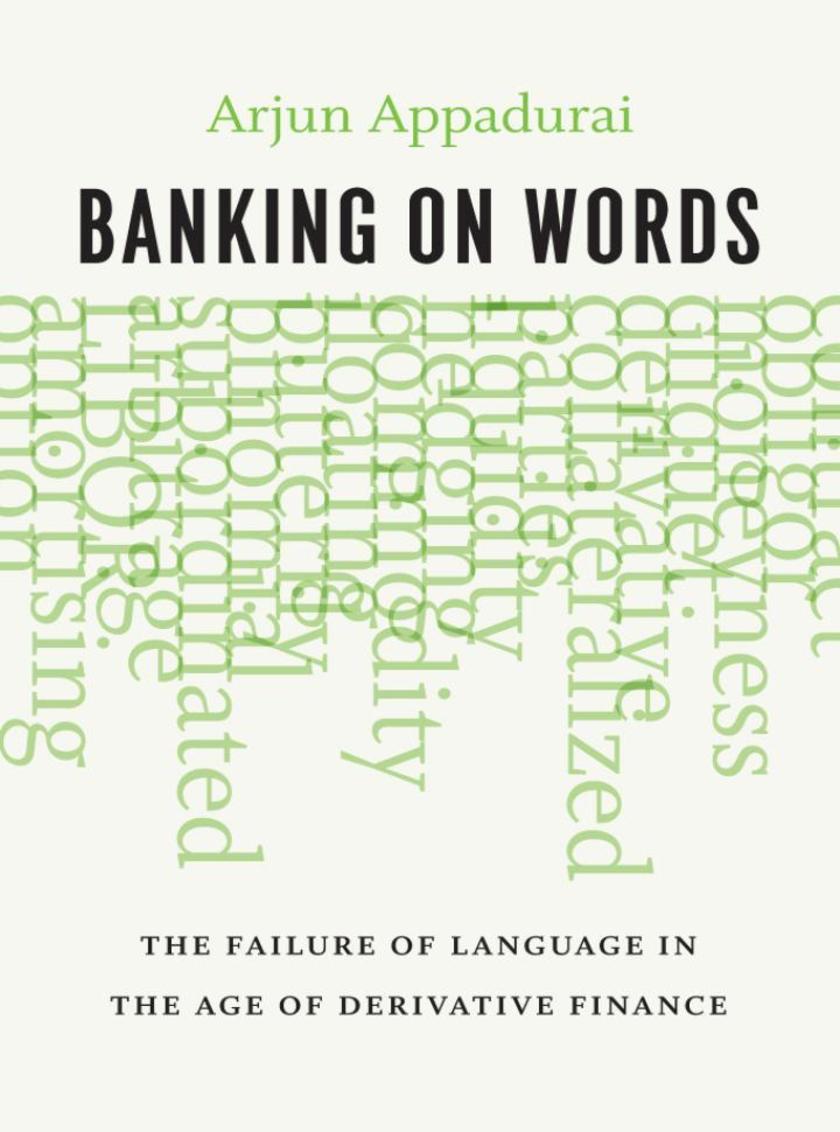
Banking on Words
¥188.35
In this provocative look at one of the most important events of our time, renowned scholar Arjun Appadurai argues that the economic collapse of 2008-while indeed spurred on by greed, ignorance, weak regulation, and irresponsible risk-taking-was, ultimately, a failure of language. To prove this sophisticated point, he takes us into the world of derivative finance, which has become the core of contemporary trading and the primary target of blame for the collapse and all our subsequent woes. With incisive argumentation, he analyzes this challengingly technical world, drawing on thinkers such as J. L. Austin, Marcel Mauss, and Max Weber as theoretical guides to showcase the ways language-and particular failures in it-paved the way for ruin.?Appadurai moves in four steps through his analysis. In the first, he highlights the importance of derivatives in contemporary finance, isolating them as the core technical innovation that markets have produced. In the second, he shows that derivatives are essentially written contracts about the future prices of assets-they are, crucially, a promise. Drawing on Mauss's The Gift and Austin's theories on linguistic performatives, Appadurai, in his third step, shows how the derivative exploits the linguistic power of the promise through the special form that money takes in finance as the most abstract form of commodity value. Finally, he pinpoints one crucial feature of derivatives (as seen in the housing market especially): that they can make promises that other promises will be broken. He then details how this feature spread contagiously through the market, snowballing into the systemic liquidity crisis that we are all too familiar with now.With his characteristic clarity, Appadurai explains one of the most complicated-and yet absolutely central-aspects of our modern economy. He makes the critical link we have long needed to make: between the numerical force of money and the linguistic force of what we say we will do with it.?
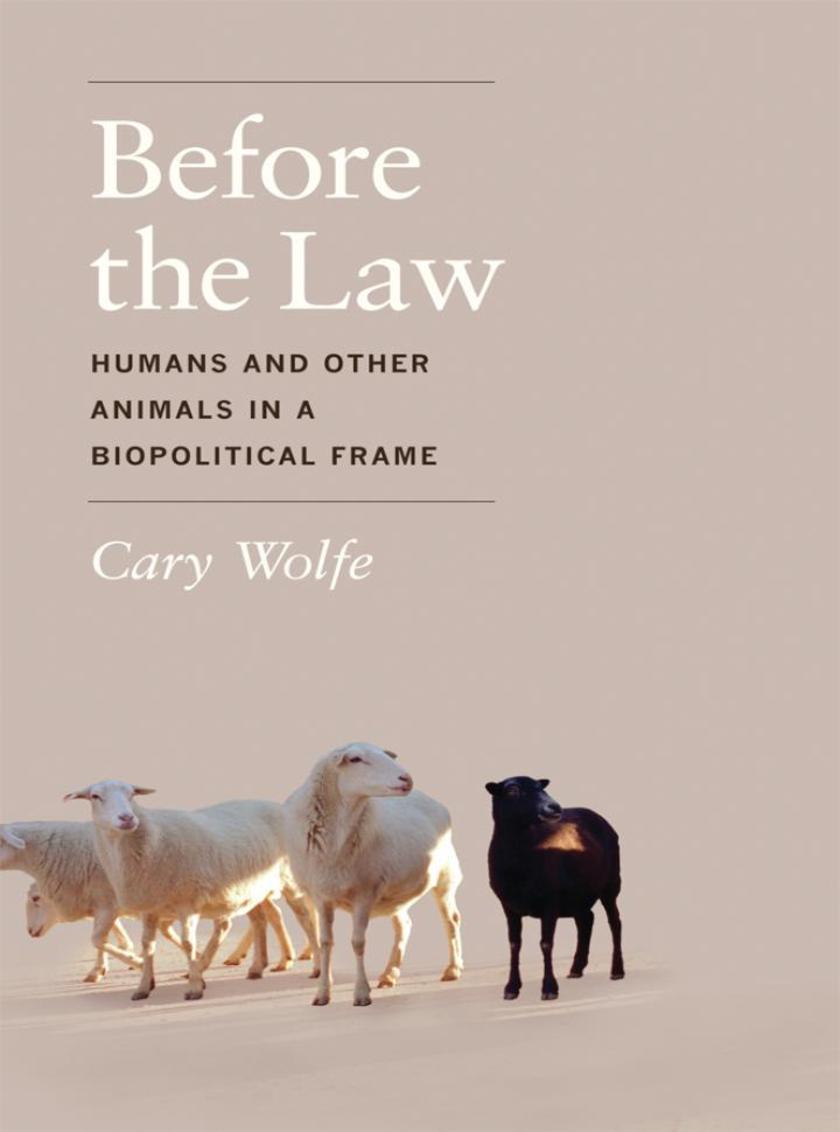
Before the Law
¥188.35
Animal studies and biopolitics are two of the most dynamic areas of interdisciplinary scholarship, but until now, they have had little to say to each other. Bringing these two emergent areas of thought into direct conversation in Before the Law, Cary Wolfe fosters a new discussion about the status of nonhuman animals and the shared plight of humans and animals under biopolitics.?Wolfe argues that the human-animal distinction must be supplemented with the central distinction of biopolitics: the difference between those animals that are members of a community and those that are deemed killable but not murderable. From this understanding, we can begin to make sense of the fact that this distinction prevails within both the human and animal domains and address such difficult issues as why we afford some animals unprecedented levels of care and recognition while subjecting others to unparalleled forms of brutality and exploitation. Engaging with many major figures in biopolitical thought-from Heidegger, Arendt, and Foucault to Agamben, Esposito, and Derrida-Wolfe explores how biopolitics can help us understand both the ethical and political dimensions of the current questions surrounding the rights of animals.
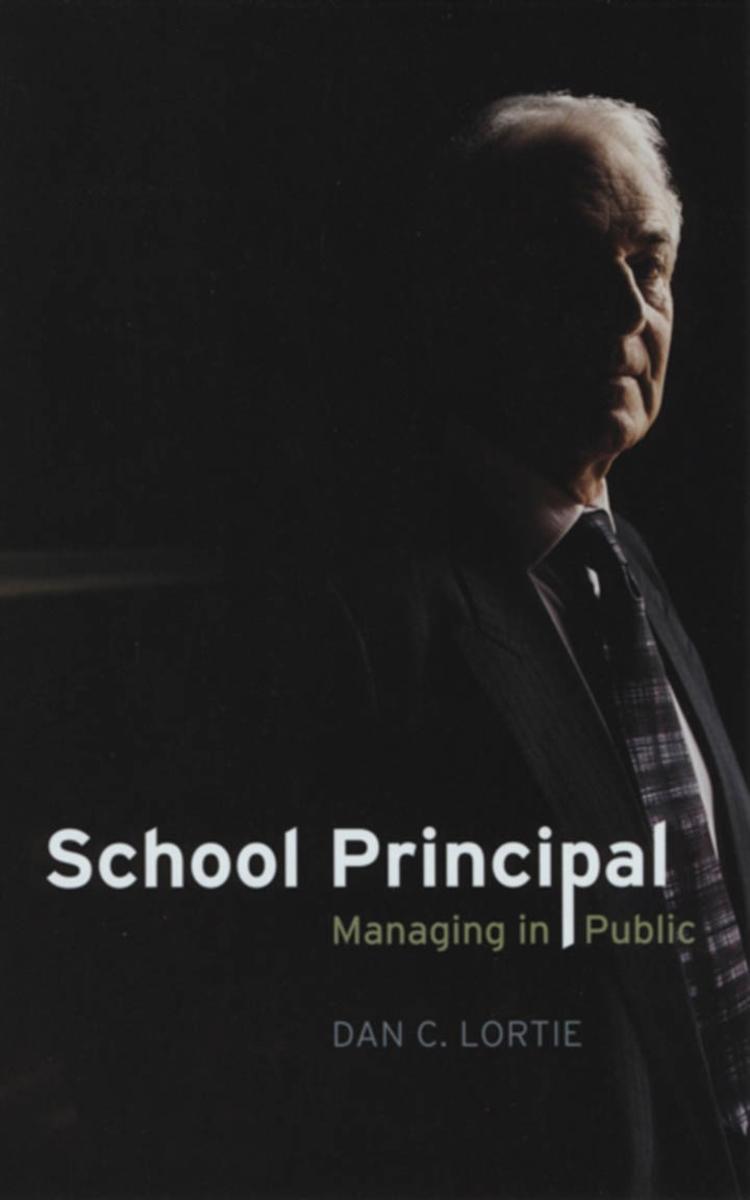
School Principal
¥188.35
When we think about school principals, most of us imagine a figure of vague, yet intimidating authority-for an elementary school student, being sent to the principal's office is roughly on par with a trip to Orwell's Room 101. But with School Principal, Dan C. Lortie aims to change that. Much as he did for teachers with his groundbreaking book Schoolteacher, Lortie offers here an intensive and detailed look at principals, painting a compelling portrait of what they do, how they do it, and why.Lortie begins with a brief history of the job before turning to the daily work of a principal. These men and women, he finds, stand at the center of a constellation of competing interests around and within the school. School district officials, teachers, parents, and students all have needs and demands that frequently clash, and it is the principal's job to manage these conflicting expectations to best serve the public. Unsurprisingly then, Lortie records his subjects' professional dissatisfactions, but he also vividly depicts the pleasures of their work and the pride they take in their accomplishments. Finally, School Principal offers a glimpse of the future with an analysis of current issues and trends in education, including the increasing presence of women in the role and the effects of widespread testing mandated by the government.Lortie's scope is both broad and deep, offering an eminently useful range of perspectives on his subject. From the day-to-day toil to the long-term course of an entire career, from finding out just what goes on inside that office to mapping out the larger social and organizational context of the job, School Principal is a truly comprehensive account of a little-understood profession.
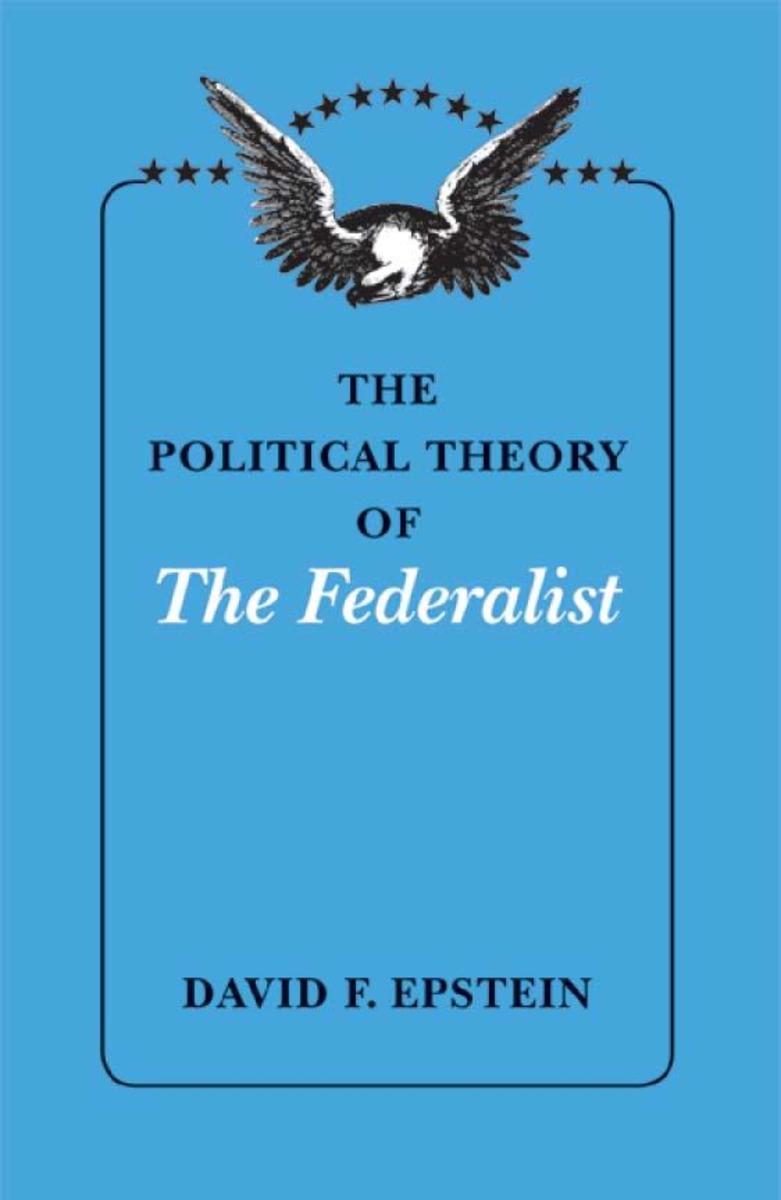
Political Theory of The Federalist
¥188.35
In The Political Theory of"e;The Federalist,"e; David F. Epstein offers a guide to the fundamental principles of American government as they were understood by the framers of the Constitution. Epstein here demonstrates the remarkable depth and clarity of The Federalist's argument, reveals its specifically political (not merely economic) view of human nature, and describes how and why the American regime combines liberal and republican values."e;While it is a model of scholarly care and clarity, this study deserves an audience outside the academy. . . . David F. Epstein's book is a fine demonstration of just how much a close reading can accomplish, free of any flights of theory or fancy references."e;-New Republic"e;Epstein's strength lies in two aspects of his own approach. One is that he reads the text with uncommon closeness and sensitivity; the other is an extensive knowledge of the European political thought which itself forms an indispensable background to the minds of the authors."e;-Times Literary Supplement

Darkness Visible
¥188.35
One of the best books ever written on one of humanity's greatest epics, W. R. Johnson's classic study of Vergil's Aeneid challenges centuries of received wisdom. Johnson rejects the political and historical reading of the epic as a record of the glorious prehistory of Rome and instead foregrounds Vergil's enigmatic style and questioning of the heroic myths.With an approach to the text that is both grounded in scholarship and intensely personal, and in a style both rhetorically elegant and passionate, Johnson offers readings of specific passages that are nuanced and suggestive as he focuses on the "e;somber and nourishing fictions"e; in Vergil's poem. A timeless work of scholarship, Darkness Visible will enthrall classicists as well as students and scholars of the history of criticism-specifically the way in which politics influence modern readings of the classics-and of poetry and literature.
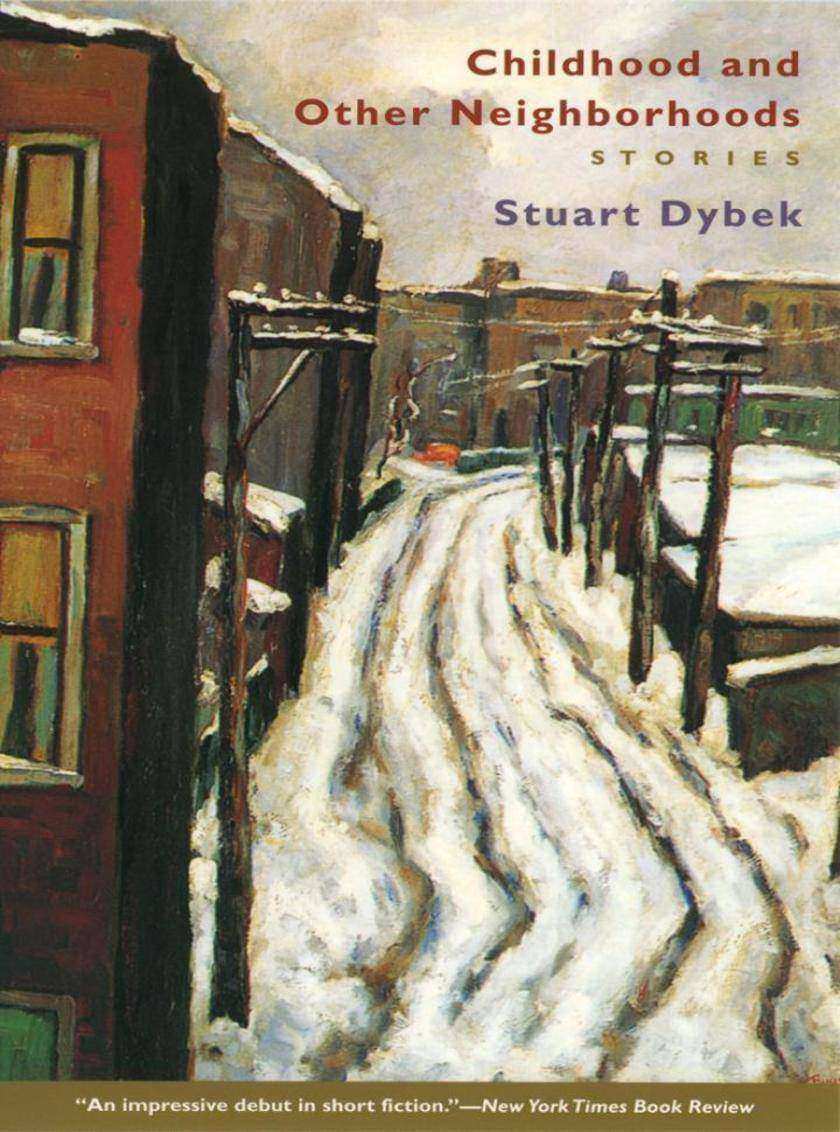
Childhood and Other Neighborhoods
¥188.35
In Stuart Dybek's Chicago, wonder lurks in unexpected places-in garbage-strewn alleys, gloomy basement apartments, abandoned rooms at the top of rickety stairs periodically rumbled by passing el trains. Transformed through the wide eyes of Dybek's adolescent heroes, these grimy urban backwaters become exotic landscapes of fear-filled possibility, of dreams not yet turned to nightmares. Chronicling what happens when Old World faith meets the dark side of the American dream, Dybek's poignant stories of coming of age in Chicago alternately appall, amaze, and just simply entertain.
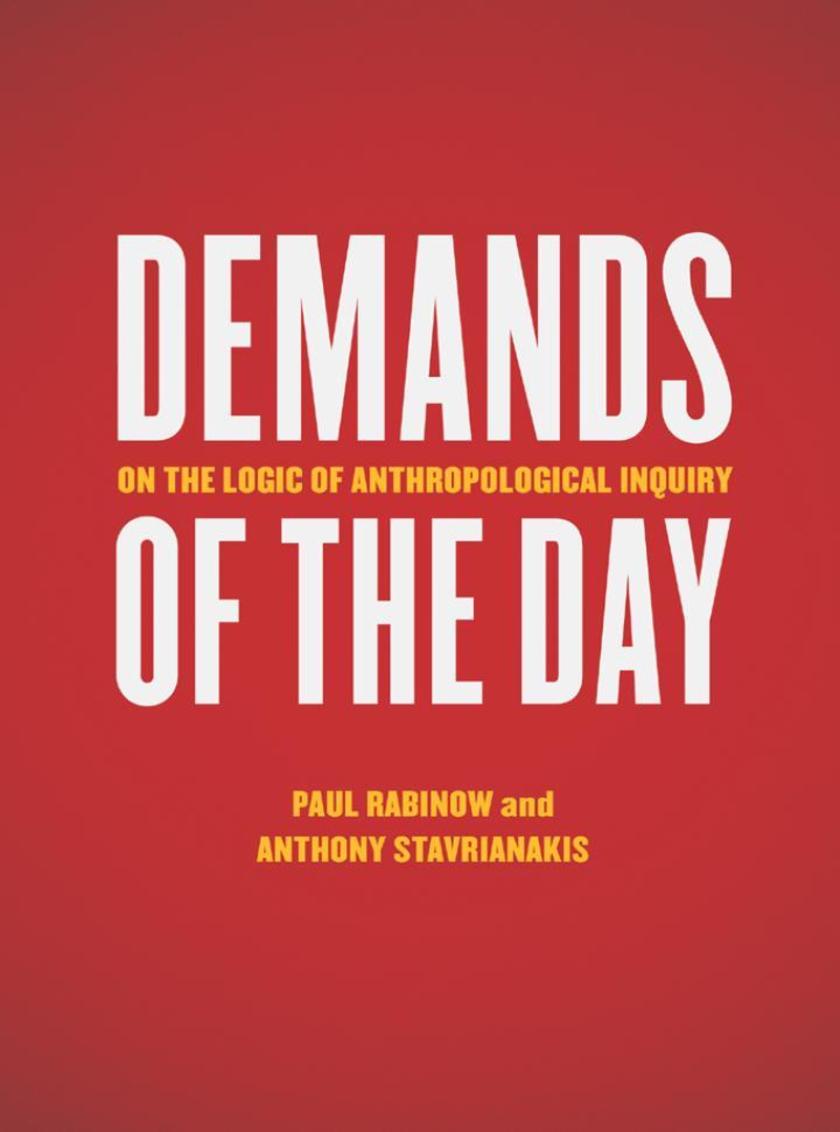
Demands of the Day
¥188.35
Demands of the Day asks about the logical standards and forms that should guide ethical and experimental anthropology in the twenty-first century. Anthropologists Paul Rabinow and Anthony Stavrianakis do so by taking up Max Weber's notion of the "e;demands of the day."e; Just as the demand of the day for anthropology decades ago consisted of thinking about fieldwork, today, they argue, the demand is to examine what happens after, how the experiences of fieldwork are gathered, curated, narrated, and ultimately made available for an anthropological practice that moves beyond mere ethnographic de*ion.?Rabinow and Stavrianakis draw on experiences from an innovative set of anthropological experiments that investigated how and whether the human and biological sciences could be brought into a mutually enriching relationship. Conceptualizing the anthropological and philosophic ramifications of these inquiries, they offer a bold challenge to contemporary anthropology to undertake a more rigorous examination of its own practices, blind spots, and capacities, in order to meet the demands of our day.
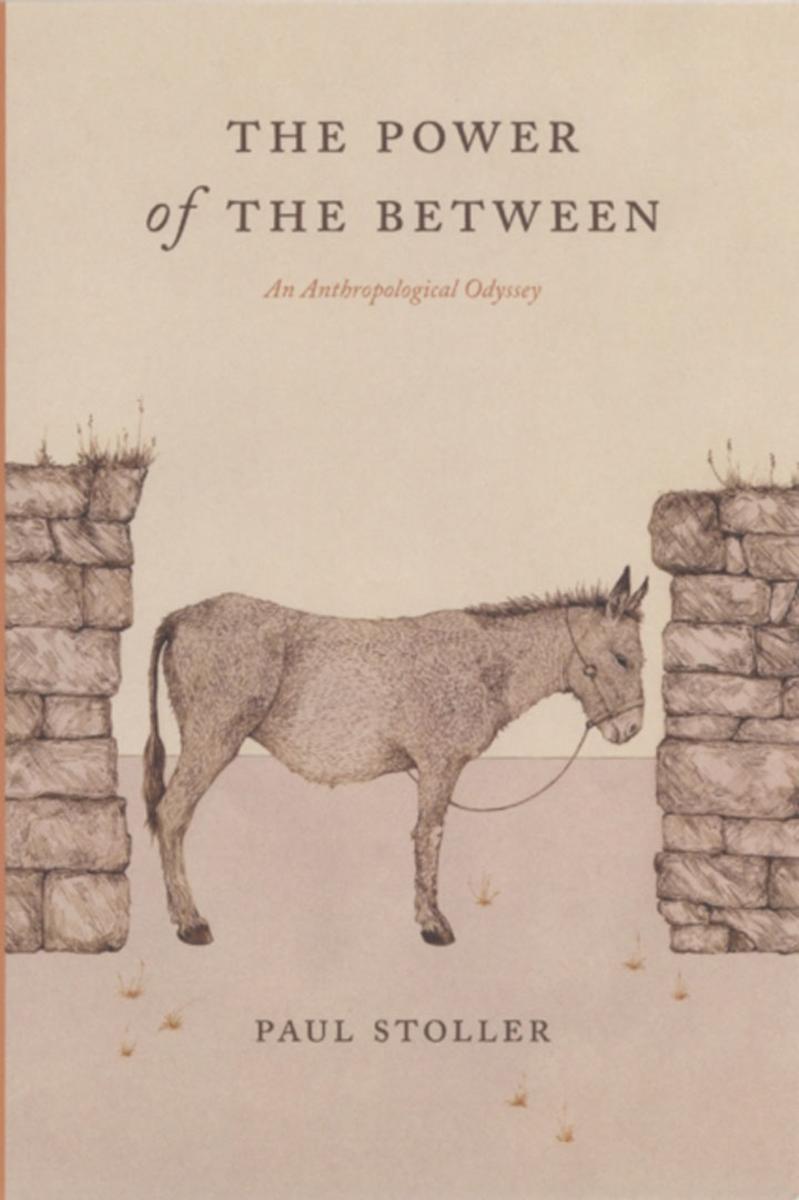
Power of the Between
¥188.35
It is the anthropologist's fate to always be between things: countries, languages, cultures, even realities. But rather than lament this, anthropologist Paul Stoller here celebrates the creative power of the between, showing how it can transform us, changing our conceptions of who we are, what we know, and how we live in the world.Beginning with his early days with the Peace Corps in Africa and culminating with a recent bout with cancer, The Power of the Between is an evocative account of the circuitous path Stoller's life has taken, offering a fascinating depiction of how a career is shaped over decades of reading and research. Stoller imparts his accumulated wisdom not through grandiose pronouncements but by drawing on his gift for storytelling. Tales of his apprenticeship to a sorcerer in Niger, his studies with Claude Lvi-Strauss in Paris, and his friendships with West African street vendors in New York City accompany philosophical reflections on love, memory, power, courage, health, and illness.Graced with Stoller's trademark humor and narrative elegance, The Power of the Between is both the story of a distinguished career and a profound meditation on coming to terms with the impermanence of all things.
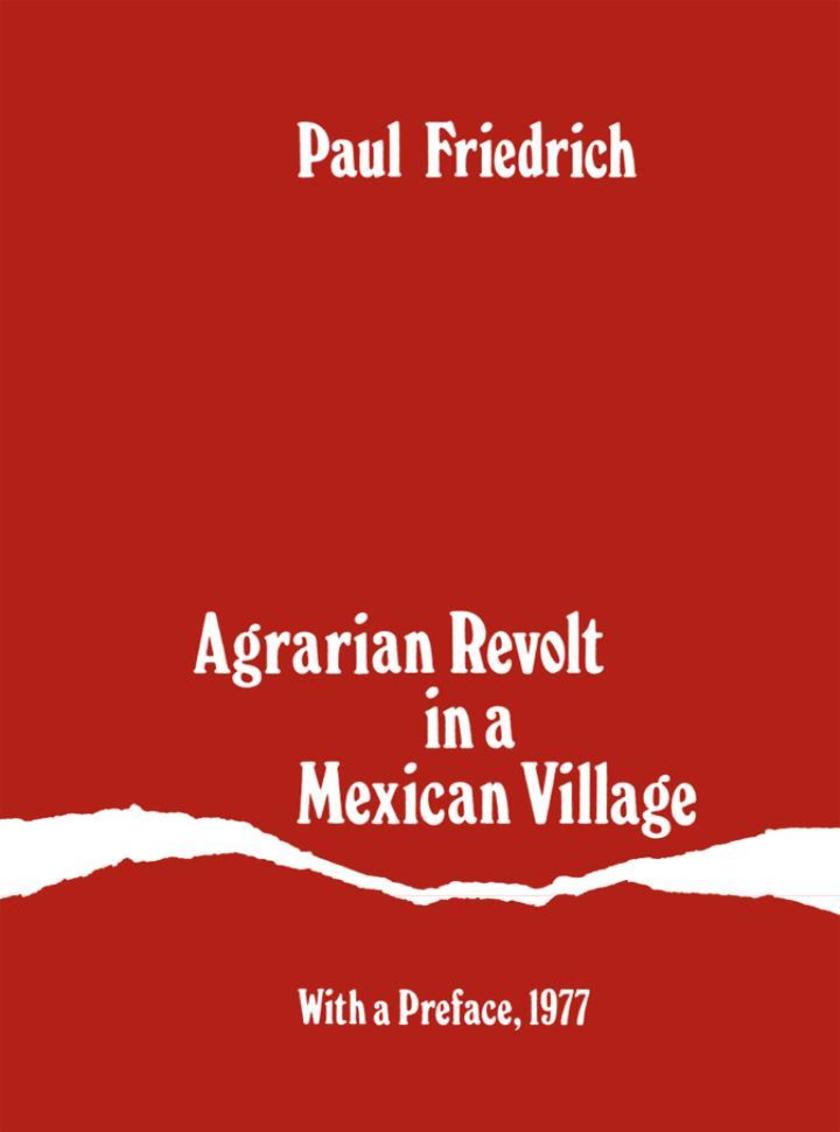
Agrarian Revolt in a Mexican Village
¥188.35
Agrarian Revolt in a Mexican Village deals with a Tarascan Indian village in southwestern Mexico which, between 1920 and 1926, played a precedent-setting role in agrarian reform. As he describes forty years in the history of this small pueblo, Paul Friedrich raises general questions about local politics and agrarian reform that are basic to our understanding of radical change in peasant societies around the world. Of particular interest is his detailed study of the colorful, violent, and psychologically complex leader, Primo Tapia, whose biography bears on the theoretical issues of the "e;political middleman"e; and the relation between individual motivation and socioeconomic change. Friedrich's evidence includes massive interviewing, personal letters, observations as an anthropological participant (e.g., in fiesta ritual), analysis of the politics and other village culture during 1955-56, comparison with other Tarascan villages, historical and prehistoric background materials, and research in legal and government agrarian archives.
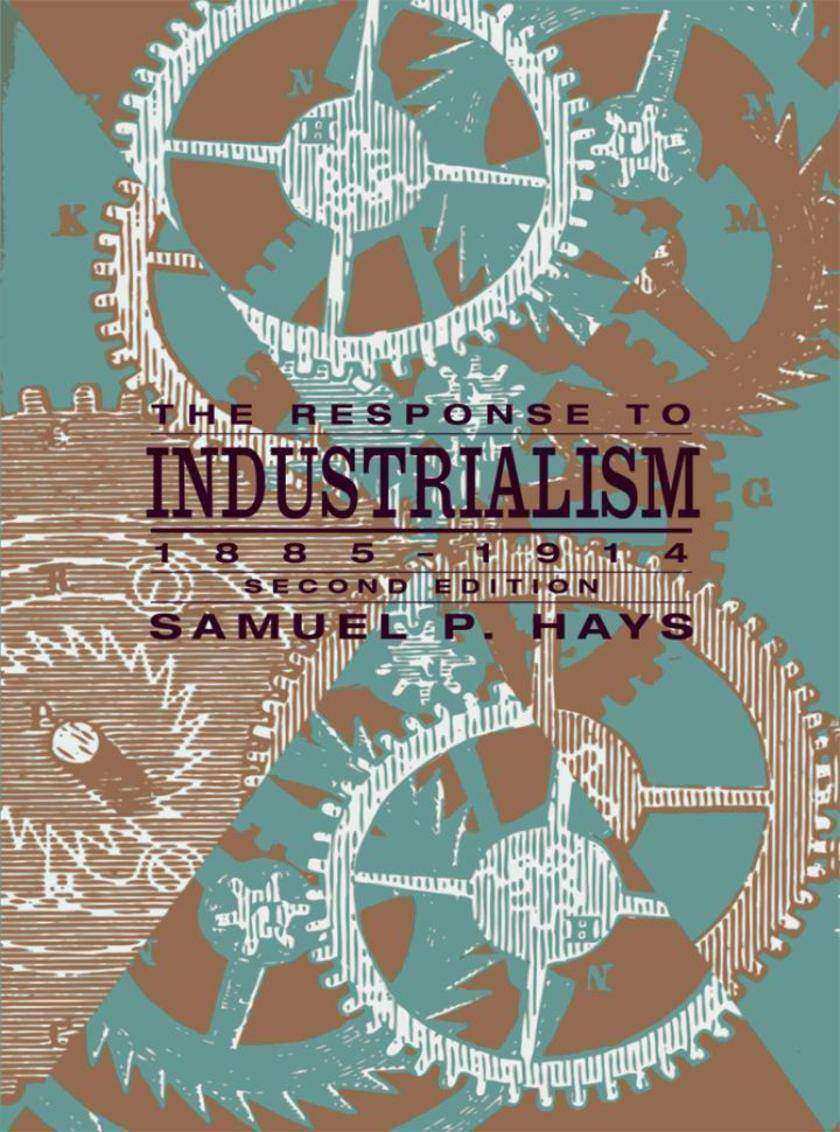
Response to Industrialism, 1885-1914
¥188.35
In this new edition, Samuel P. Hays expands the scope of his pioneering account of the ways in which Americans reacted to industrialism during its early years from 1885 to 1914. Hays now deepens his coverage of cultural transformations in a study well known for its concise treatment of political and economic movements.Hays draws on the vast knowledge of America's urban and social history that has been developed over the last thirty-eight years to make the second edition an unusually well-rounded study. He enhances the original coverage of politics, labor, and business with new accounts of the growth of cities, the rise of modern values, cultural conflicts with Native Americans and foreign nations, and changing roles for women, African-Americans, education, religion, medicine, law, and leisure. The result is a tightly woven portrait of America in transition that underscores the effects of impersonal market forces and greater personal freedom on individuals and chronicles such changes as the rise of social inequality, shifting power, in the legal system, the expansion of the federal government, and the formation of the Populist, Progressive, and Socialist parties.
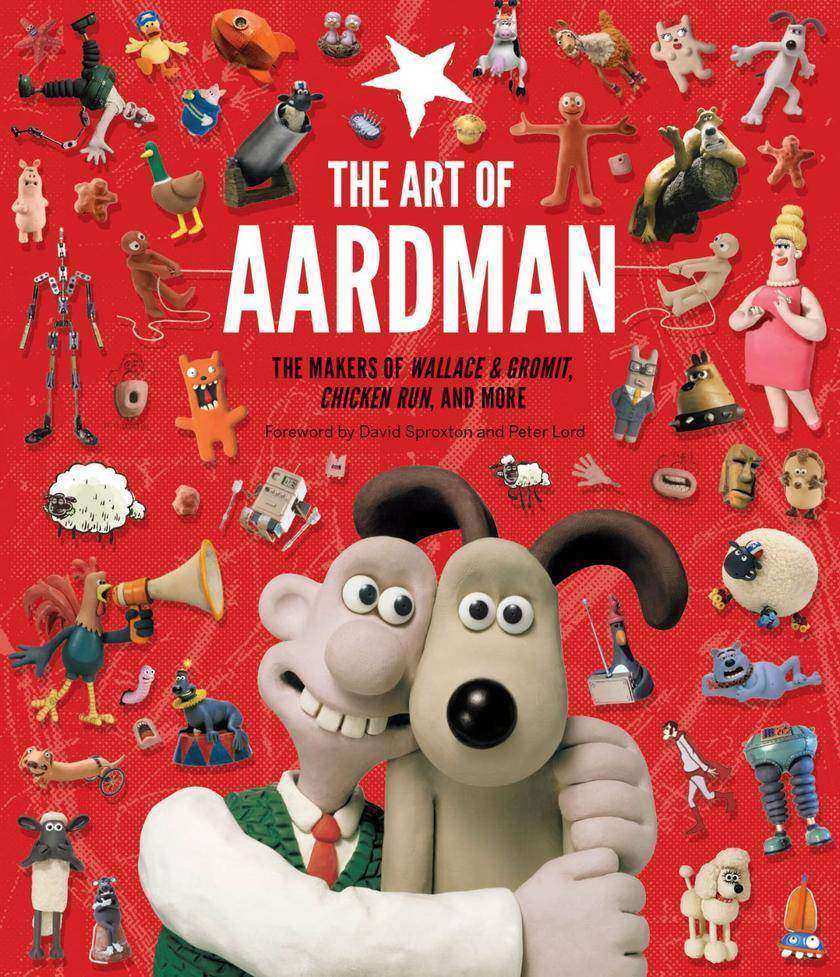
Art of Aardman - The Makers of Wallace & Gromit, Chicken Run, and More
¥188.25
See the iconic, energetic art of Aardman Animations like never before! The Art of Aardman takes readers on an unforgettable, behind-the-scenes journey through the studio's archives. This collection features original character sketches and never-before-seen concept art, offering a unique look inside the studio that created Chicken Run, Morph, and, of course, Wallace & Gromit. Kicking things off with forewords from founders Peter Lord and David Sproxton, this celebration of all-things Aardman is a must-have for all animation fans.

Mandela - A Film and Historical Companion
¥188.25
This official companion book to the epic major feature film Mandela: Long Walk to Freedom retraces the life of Nelson Mandela, weaving together his own words and historic humanitarian efforts with cinematic narrative and exclusive behind-the-scenes content. It's a movie tie-in unlike any other: a combination of dramatic recreations and history, featuring film stills alongside archival photographs of actual events; commentary from the acclaimed cast and filmmakers plus interviews with Mandela's own family and comrades; excerpts from his books and personal papers, with lush, full-color panoramas of the South African landscapes where the film was shot on location. Fans of the movie and Mandela admirers, whatever their age, will relish this unique look at the making of an epic motion picture and the life of a beloved historical icon.

Via?a unui c?rturar
¥186.80
Tr?g?nd linie, am spune c? ne afl?m ?n prezen?a unui demers pertinent de mare actualitate, a unui pre?ios instrument de lucru menit s? umple un gol ?n literatura didactico-?tiin?ific? de specialitate, dar totodat? put?nd deveni util ?i unor cercuri intelectuale interesate de evolu?ia fenomenului poetic rusesc ?n secolul XX, situate ?n afara comunit??ii universitare. (Mircea Croitoru) E o bibliotec? umbl?toare. A citit mii de c?r?i ale altora ?i a scris c?teva ale sale. ?l recuno?ti dintr-o mie. Ziarele, revistele, c?r?ile ?i sunt lipite de degete. Merge pe strad? ?i cite?te, a?teapt? lini?tit la o coad? ?i cite?te. Absent pentru lumea aceasta viermuitoare ?i pragmatic?, el s-a retras protector ?n spatele ziarelor ?i c?r?ilor, ?i a rezistat. Cu o ?inut? sobr?, de o ?epeno?enie verde, demn? de ?ara Fagilor de unde-?i trage ob?r?ia, nu-i po?i da anii pe care, incredibil, ?i are. (…) Dac? te duci la el acas?, totul pare sprijinit pe tomuri, iar dac? ai proasta inspira?ie s? clinte?ti ceva, acea ?arhitectur? intelectual?“ ??i poate fi fatal?. Un soi de Manole Anapoda, zidit ?n chip de An? ?ntr-o m?n?stire de c?r?i. Prietenii ?i spun Dima. Am tradus ?mpreun? din Bulat Okudjava volumul de versuri C?ntecul esen?ial ?i, din mul?i al?i poe?i contemporani ru?i, ?n periodice. Metodic, punctual, suferind de acribie ?i, bine?n?eles, scufundat ?ntr-o lectur? atunci c?nd nu lucram ?mpreun?, a dovedit c? nu e doar un consumator de literatur?, ci ?i un excelent cunosc?tor al limbii din care traducea, ?i chiar un creator. ?l invidiez pentru felul sfid?tor ?n care ?tie s? uite de televizor ?i de calculator. Dima cite?te. El e scufundat ?n ecranul unei file de carte, al unei pagini de ziar sau de revist?. ?ntr-o vreme ?n care aceste dou? ustensile subjug? lumea obosind-o, nevroz?nd-o, ?mb?tr?nind-o, f?c?nd abstrac?ie de mirajul lor, el a r?mas ?nc? proasp?t, zdrav?n ?i t?n?r. (Passionaria Stoicescu)
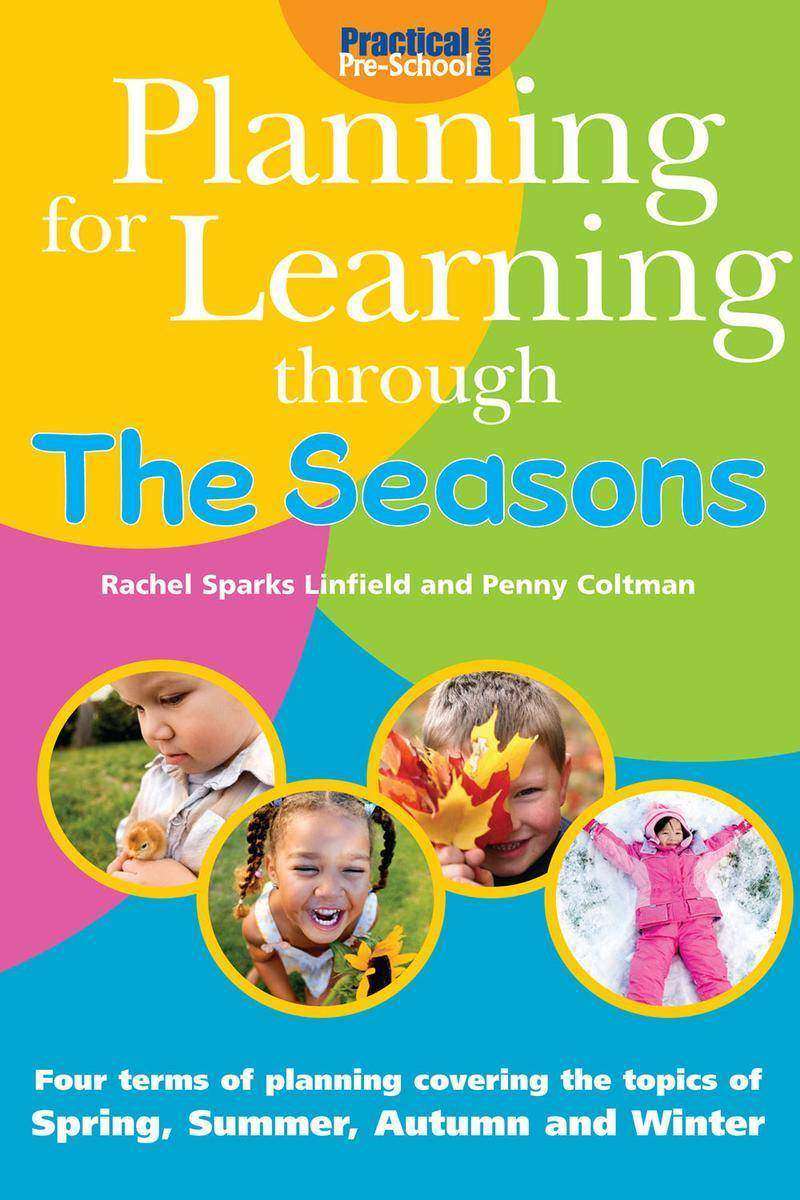
Planning for Learning through the Seasons
¥186.29
Plan for six weeks of learning for each season with this bumper edition, covering all six areas of learning and development of the EYFS. This bumper edition contains all the material contained in Planning for Learning Through Spring, Summer, Autumn and Winter in one value book. Ideal for helping young children to explore the seasons, whatever the time of year, with this step-by-step guide to planning fun activities that cover a wide range of Early Learning Goals. This title comes with advice on observing and assessing children's learning, as well as how to record evidence of learning. It also includes photocopiable sheets for parents to take and extend the learning at home. A must-have for any early years setting wanting easy to dip into planning all year round.
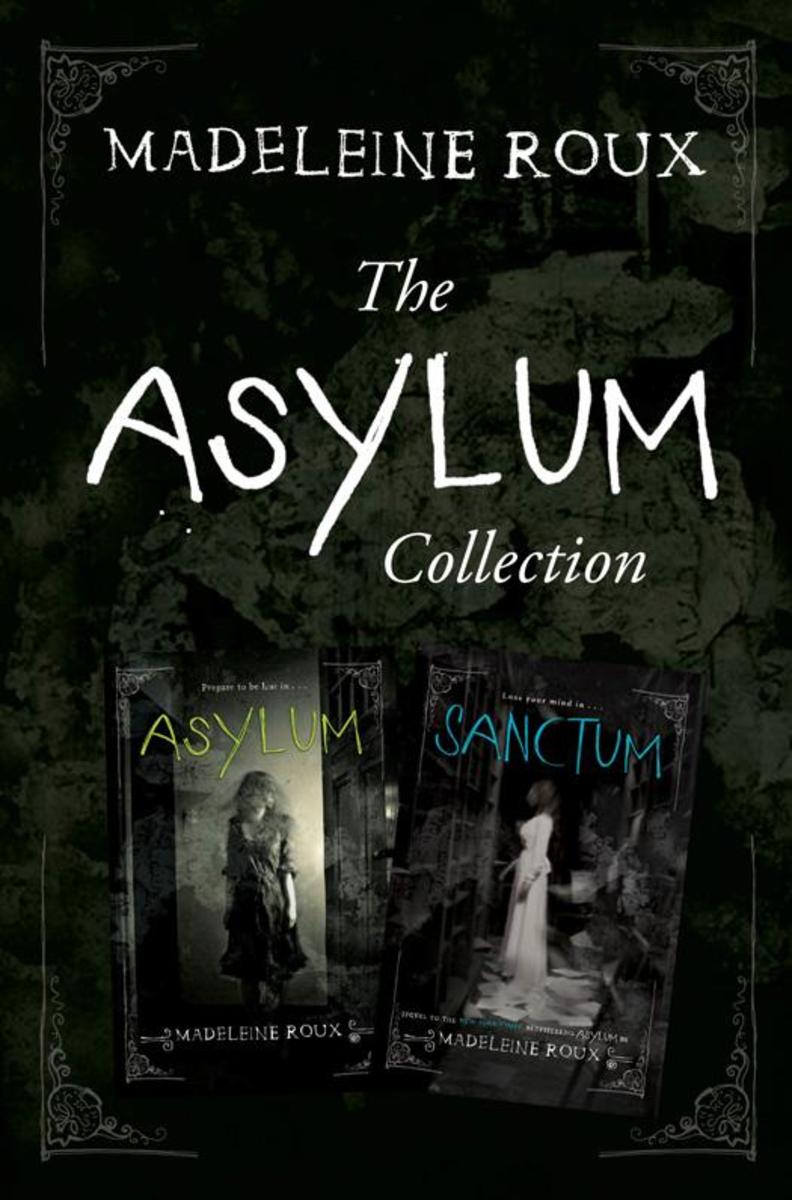
The Asylum Two-Book Collection
¥185.33
Here's a haunting two-book collection that's perfect for fans of Miss Peregrine's Home for Peculiar Children.Asylum: Madeleine Roux's New York Times bestselling Asylum is a thrilling and creepy photo-illustrated novel that Publishers Weekly called "a strong YA debut that reveals the enduring impact of buried trauma on a place." Featuring found photographs from real asylums and filled with chilling mystery and page-turning suspense, Asylum is a horror story that treads the line between genius and insanity.Sanctum: An Asylum Novel: In this haunting, fast-paced sequel to the New York Times bestselling photo-illustrated novel Asylum, three teens must unlock some long-buried secrets from the past before the past comes back to get them first. Featuring found photographs, many from real vintage carnivals, Sanctum is a mind-bending reading experience that blurs the lines between past and present, genius and insanity
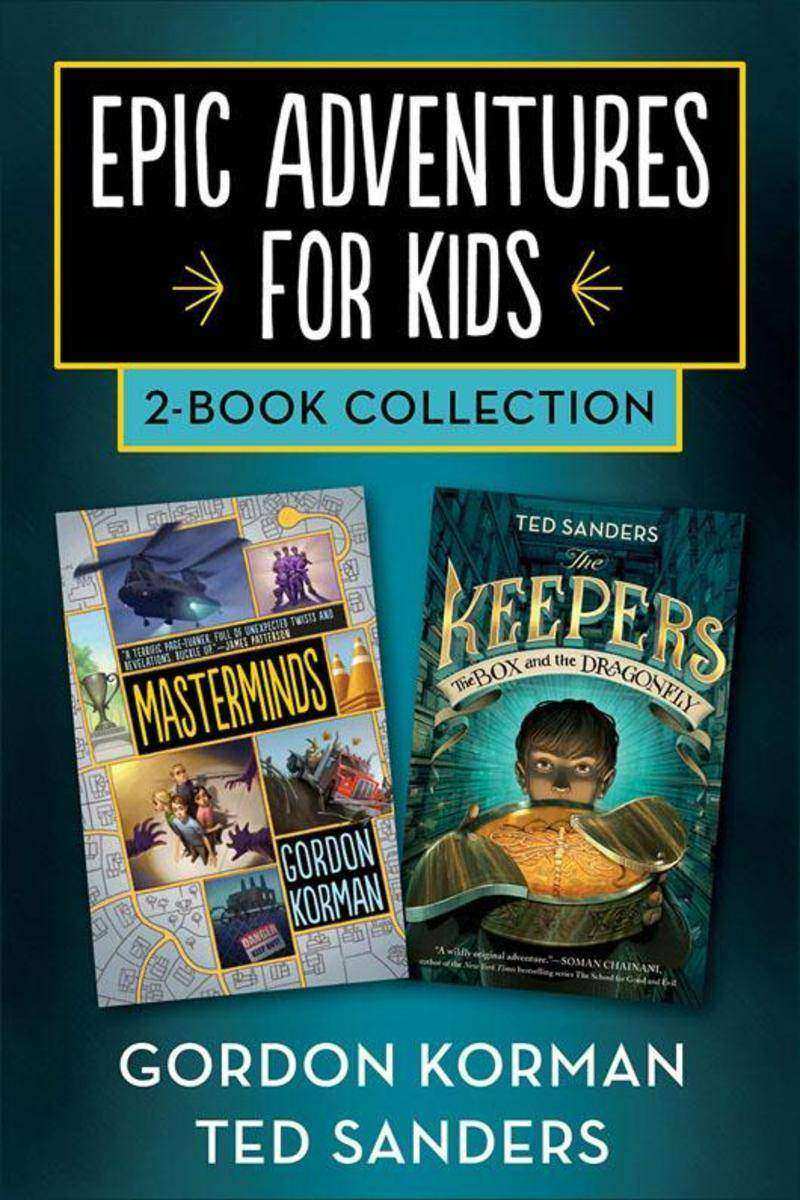
Epic Adventures for Kids 2-Book Collection
¥185.33
Here are two epic, adventure-packed novels for middle grade readers, from #1 New York Times bestselling author Gordon Korman and award-winning author Ted Sanders in his first book for younger readers.Masterminds: Action-packed and full of unexpected twists, this new series from Gordon Korman is perfect for young fans of James Patterson and John Grisham. In idyllic Serenity, New Mexico, honesty and integrity are valued above all else. The thirty kids who live there never lie—they know it's a short leap from that to the awful problems of other, less fortunate places. Then one day Eli Frieden bikes to the edge of the city limits and something so crazy and unexpected happens, it changes everything.The Keepers: The Box and the Dragonfly: Experience the fantastic adventure filled with magical objects, secret sects, and life as we know it on the line! Mixing magic and physics, Ted Sanders has created an epic story that has the feel of classic fantasy but twists it into something new and innovative. When Horace F. Andrews finds the Box of Promises in the curio shop, he quickly discovers that ordinary-looking objects can hold extraordinary power. From the enormous, sinister man shadowing him to the gradual mastery of his newfound abilities to his encounters with Chloe—a girl who has an astonishing talent of her own—Horace follows a path that puts the pair in the middle of a centuries-old conflict between two warring factions in which every decision they make could have disastrous consequences.

Enemies Within: Communists, the Cambridge Spies and the Making of Modern Britain
¥184.23
What pushed Blunt, Burgess, Cairncross, Maclean and Philby into Soviet hands? With access to recently released papers and other neglected documents, this sharp analysis of the intelligence world examines how and why these men and others betrayed their country and what this cost Britain and its allies. Enemies Within is a new history of the influence of Moscow on Britain told through the stories of those who chose to spy for the Soviet Union. It also challenges entrenched assumptions about abused trust, corruption and Establishment cover-ups that began with the Cambridge Five and the disappearance of Guy Burgess and Donald Maclean on the night boat to Saint-Malo in 1951. In a book that is as intellectually thrilling as it is entertaining and illuminating, Richard Davenport-Hines traces the bonds between individuals, networks and organisations over generations to offer a study of character, both individual and institutional. At its core lie the operative traits of boarding schools, the universities of Oxford and Cambridge, the Intelligence Division, Foreign Office, MI5, MI6 and Moscow Centre. Davenport-Hines tells many stories of espionage, counter-espionage and treachery. With its vast cope, ambition and scholarship, Enemies Within charts how the undermining of authority, the rejection of expertise and the suspicion of educational advantages began, and how these have transformed the social and political temper of modern Britain.

Wilfred Thesiger in Africa
¥184.23
A unique collection of essays accompany Wilfred Thesiger’s own personal photographs of the Africa he experienced as one of the world’s most celebrated explorers. While Wilfred Thesiger’s own classic writings (including ‘The Marsh Arabs’, ‘Arabian Sands’, ‘Desert’, Marsh and Mountain’, ‘The Life of My Choice’ and ‘My Kenya Days’) comprehensively cover his classic journeys amongst the Marsh Arabs in southern Iraq, or across the Empty Quarter in Arabia, they fail conspicuously to shed light on his character and motives, which have remained an enigma. Maitland’s biography had Thesiger’s support before he died in 2003, and has been written with full access, granted to no one else, to the rich Thesiger archive – vivid, intimate family correspondence, and his own letters, diaries and notebooks which are far more confiding than his scrupulously edited published accounts. Maitland investigates in depth Thesiger’s parents and family influences; his wartime experiences and the ethos of conflict; his philosophy as a hunter and conservationist; his development as a writer and photographer; his close friendships with the Arabs and Africans amongst whom he lived; and his sexuality. In all, this major biography of a great and unusual man will take its place on the shelf of outstanding lives of the great explorers.
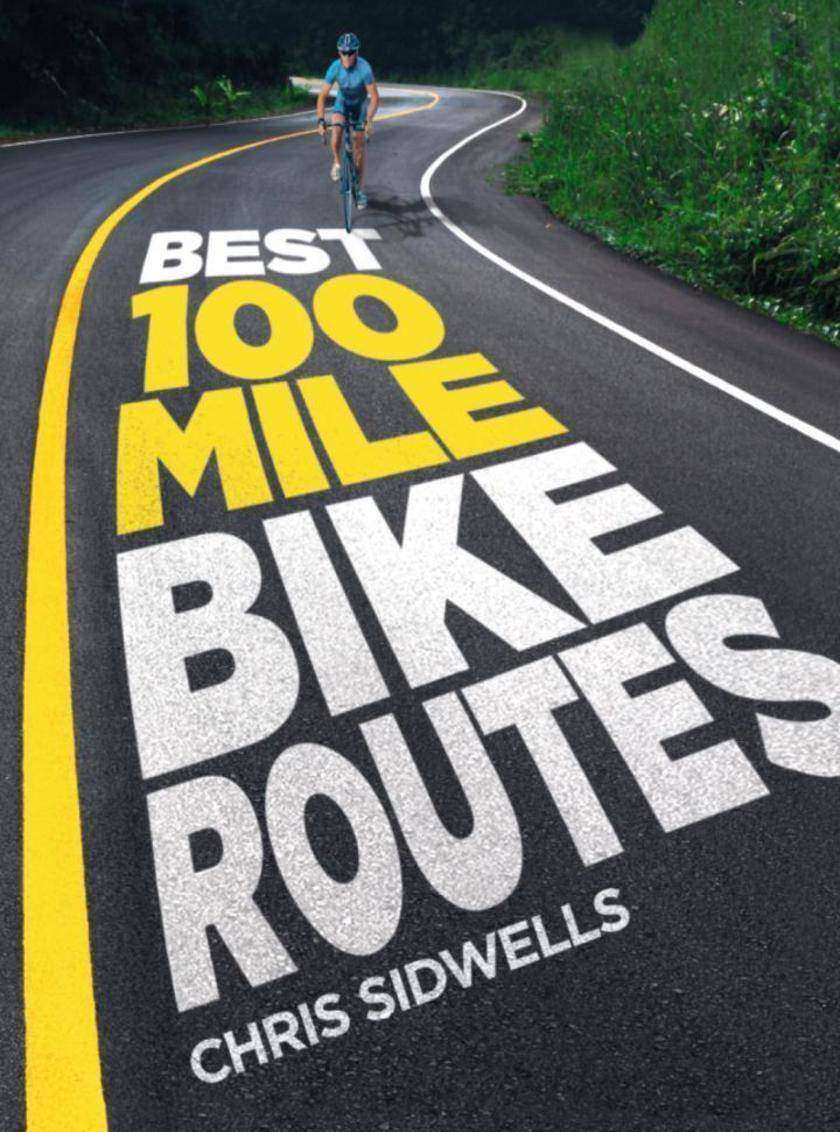
Best 100-Mile Bike Routes
¥184.23
Completing one hundred miles by bike is a timeless challenge. Ever since the invention of a pedal- powered, two-wheel vehicle, 100 miles has been the benchmark by which cyclists can measure their prowess. Best 100-Mile Bike Routes is the ultimate guide to a hundred 100-mile rides grouped in geographical regions, from the north of Scotland to the south coast; representing the best the UK has to offer. The routes are unique, named after local events, people or geography, or inspired by classic sportive routes, and each one has been carefully put together, tried and tested. With clear mapping, directions, statistics, points of interest, elevations and ratings, every route is simple to follow. Perfect for cyclists of all levels of ability, and providing details of the necessary equipment and training schedules, Best 100-Mile Bike Routes prepares you completely for the challenge, making this cycling feat achievable by almost anyone.
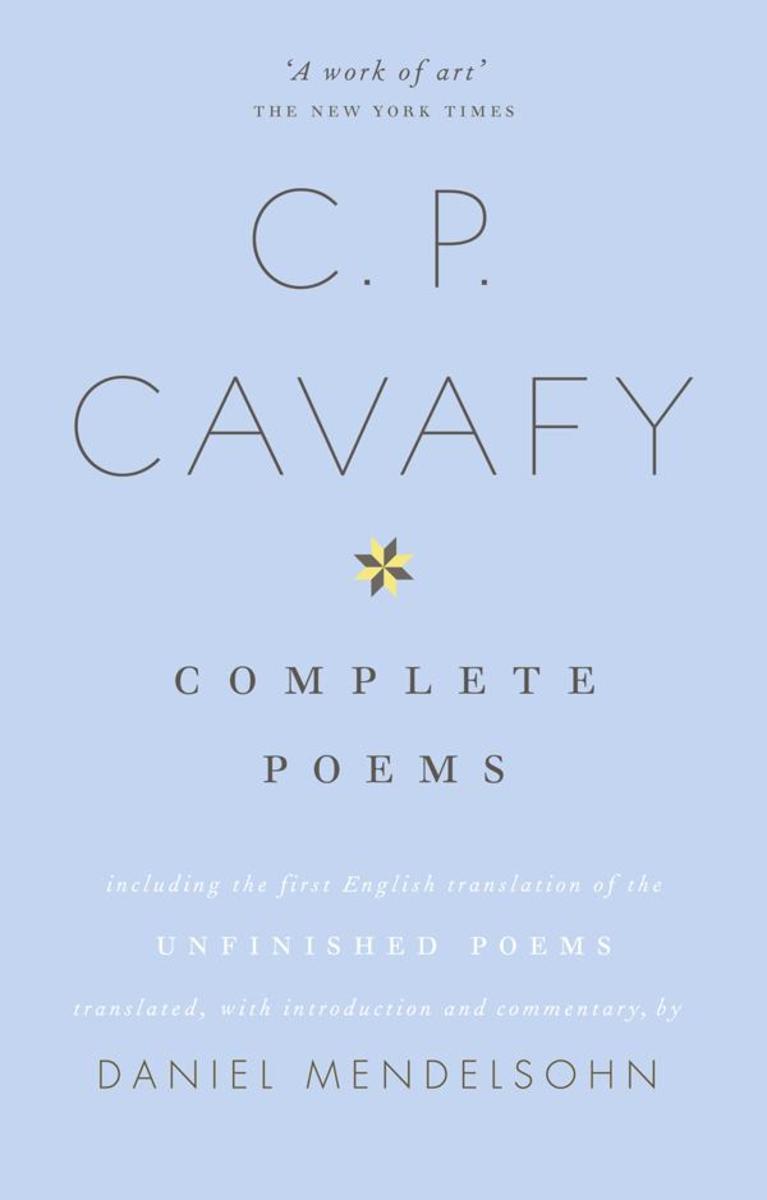
The Complete Poems of C.P. Cavafy
¥184.23
The complete Cavafy poems – including the unfinished works – in a stunning new translation. From the acclaimed author of ‘The Lost’, a translation that scales new heights in modern poetic rendering. With a masterful eye for irony and an ear for the music of Cavafy’s form, Daniel Mendelsohn’s translation brings to English the poet who won acclaim from generations of writers, E.M. Forster and T.S. Eliot among them. Spanning the fall of Homeric heroes to the rise of the modern world, Cavafy’s poetry collapses the spectra of time, geography and age into intimately personal elegies. Works such as "Waiting for the Barbarians" and “Ithica”, famed for their revival of the ancient worlds, continue to address the modern reader in terms of timeless relevance. Here they are accompanied by Cavafy’s unfinished poems, translated into English for the first time. From a highly respected classicist and social essayist, Daniel Mendelsohn’s edition is uniquely placed to become the fresh, definitive edition of Cavafy in English.
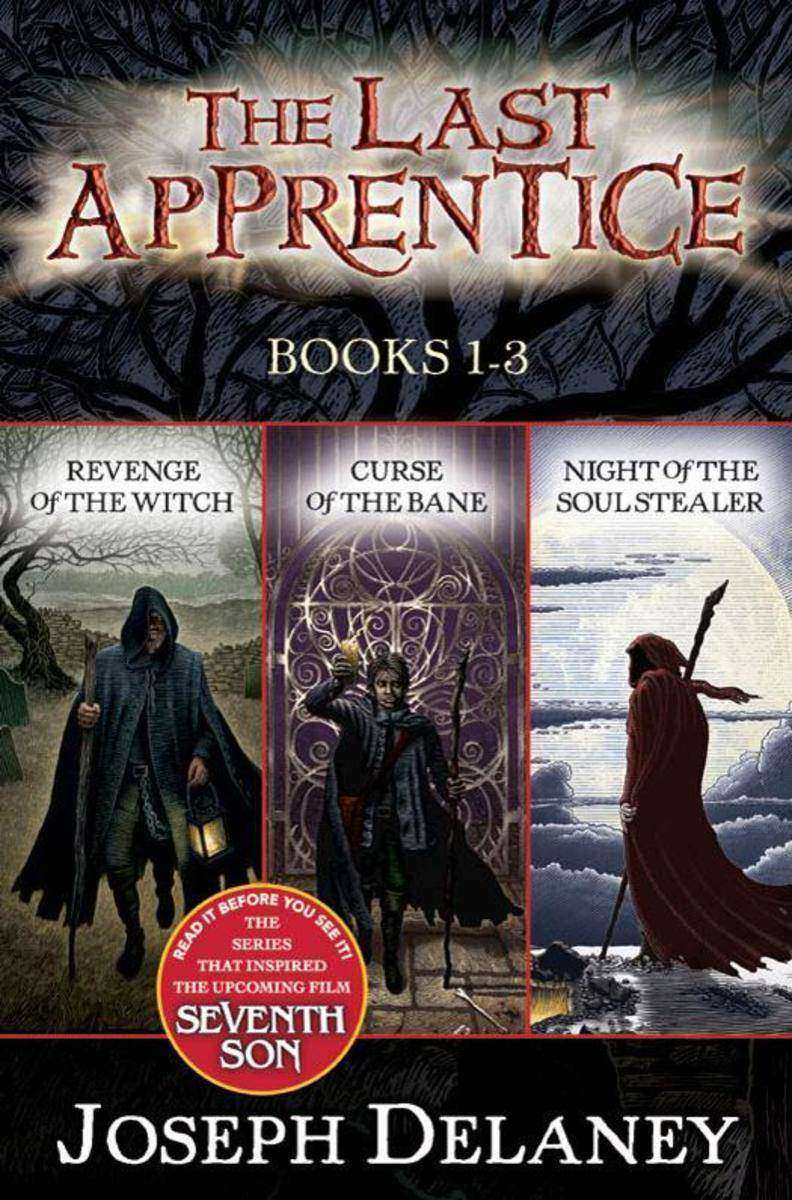
Last Apprentice 3-Book Collection
¥183.36
The first three volumes of the internationally bestselling Last Apprentice series! Thomas Ward is the seventh son of a seventh son. He is destined to battle the creatures of the dark: witches, boggarts, ghosts, and more. And he will, as the apprentice to the local Spook. But can he survive when so many apprentices have failedThis ebook collection of the acclaimed series that inspired the major motion picture Seventh Son includes Book One: Revenge of the Witch; Book Two: Curse of the Bane; and Book Three: Night of the Soul Stealer.




 购物车
购物车 个人中心
个人中心



